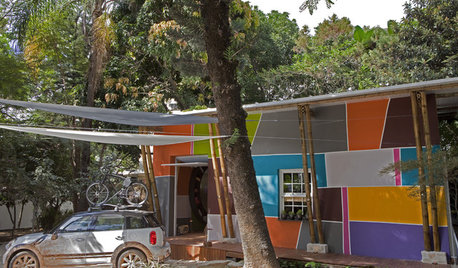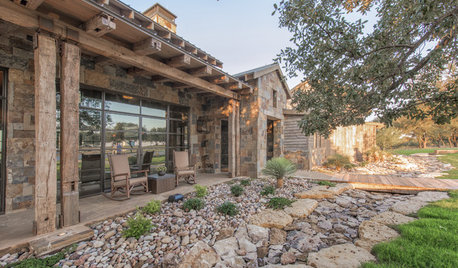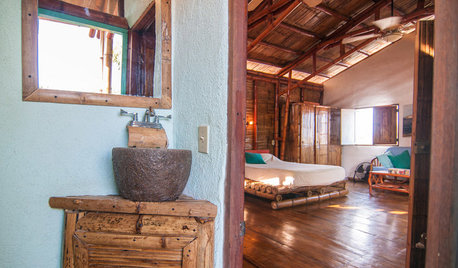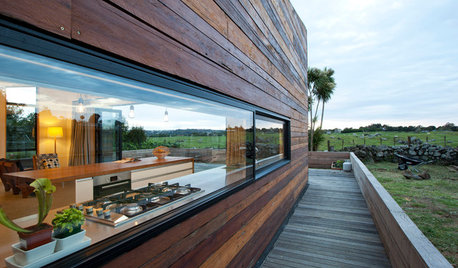Gardening for vegatarien sustainability
sunshinelovegirl
19 years ago
Related Stories

LANDSCAPE DESIGNProblem Solving With the Pros: Sustainable Landscape Captures Runoff
An underground cistern, permeable paving and a rain garden are part of this Washington, D.C. yard's thoughtful design
Full Story
COLORFUL HOMESHouzz Tour: Splashy, Sustainable Shack in São Paulo
An abandoned home gets a second chance as a sustainable weekend dwelling for a Brazilian couple in the design industry
Full Story
LANDSCAPE DESIGNTo Manage Stormwater Sustainably, Understand Your Site
Follow this guide to learn how water moves through your landscape and how best to manage it
Full Story
GREEN BUILDINGHouzz Tour: Home Keeps Its Place on ‘Sustainability Street’
Materials are reused and recycled in a midcentury brick bungalow for an energy-efficient remodel and addition
Full Story
GLOBAL STYLEMy Houzz: Sustainable Bamboo for a Prototype Home in Nicaragua
Ecofriendly living has a new champion, as a Granada firm kicks off its bamboo offerings with this house's architecture and furnishings
Full Story
SMALL HOMESHouzz Tour: Sustainable, Comfy Living in 196 Square Feet
Solar panels, ship-inspired features and minimal possessions make this tiny Washington home kind to the earth and cozy for the owners
Full Story
GREEN BUILDINGMy Houzz: Sustainability Meets Global Style on an Australian Hilltop
It puts the power of the sun to work while keeping the budget in check and family socializing front and center
Full Story
HOUZZ TOURSHouzz Tour: A Seattle Home Reaches for High Sustainability
Tapping into rainwater, sunlight and natural ventilation, a Washington state home gets both green cred and a gorgeous look
Full Story
HOMES AROUND THE WORLDHouzz Tour: Eastern Philosophy Meets Sustainability
A contemporary home in Auckland, New Zealand, immerses itself in nature and the Sthapatya Veda architectural discipline
Full Story
GREEN BUILDINGSalvaged Materials Triumph as All-Stars of Sustainability
When you save manufacturing energy and have a beautifully crafted home to boot, it's a win-win situation
Full StorySponsored






breezyb
breezyb
Related Professionals
Arlington Landscape Architects & Landscape Designers · Mitchellville Landscape Architects & Landscape Designers · Richmond Heights Landscape Architects & Landscape Designers · Goodyear Landscape Contractors · Aberdeen Landscape Contractors · Clayton Landscape Contractors · Dickinson Landscape Contractors · Gloucester Landscape Contractors · Hawthorne Landscape Contractors · Setauket-East Setauket Landscape Contractors · White Bear Lake Landscape Contractors · Raytown Landscape Contractors · Kannapolis Siding & Exteriors · Waterville Siding & Exteriors · Oakville Siding & Exteriorshuisjen
davidbooth65
madspinner
madspinner
sunshinelovegirlOriginal Author
tedp2
huisjen
breezyb
sunshinelovegirlOriginal Author
huisjen
chau_ya
bigeasyjock
breezyb
friedgreentom
mid_tn_mama
gran2
anniew
ruthieg__tx
ruthieg__tx
Millie_36
shawnee_sitter
josie_z6b
mountainman_bc
geraldo
TruePurple
TruePurple
TruePurple
TruePurple
huisjen
TruePurple
markapp